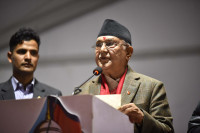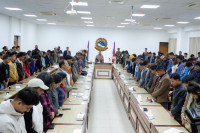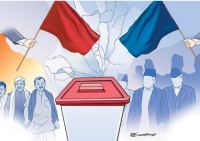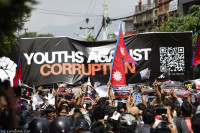Opinion
By the women
This year, let us celebrate Teej by making a contribution to the quake-affected women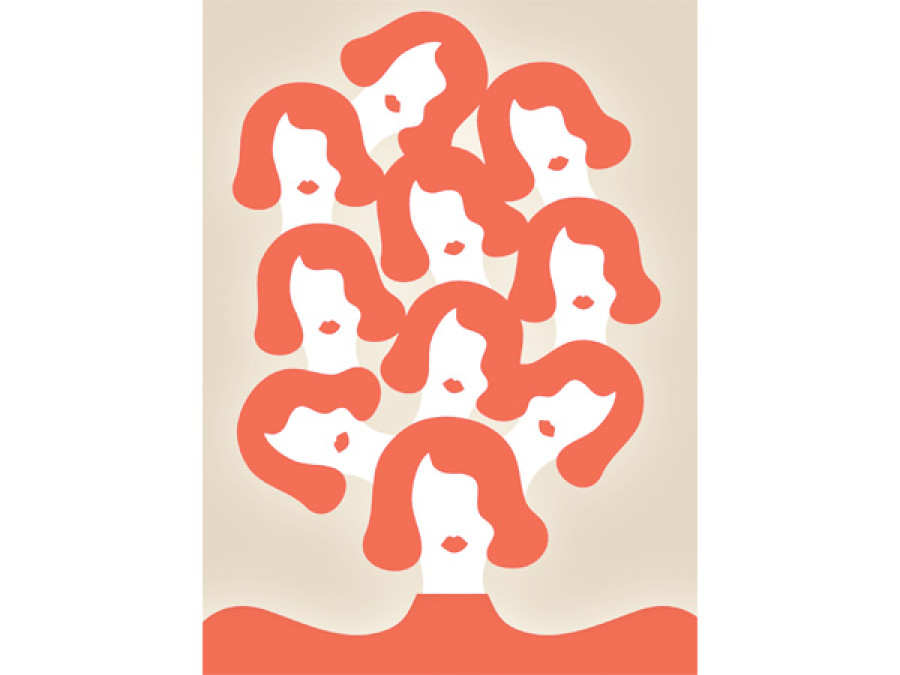
Mona Shrestha Adhikari
Every year, in the run up to Teej, Hindu Nepali women are busy sending out invitations and planning on how to celebrate this festival. These days, this festival is being increasingly recognised and celebrated by women irrespective of their caste, class or marital status. Songs sung during Teej range from those on discrimination and oppression faced by women to those on the need to be united and courageous to claim one’s rights.
This year, some women have come up with innovative ways to celebrate this festival. Three recent incidents in the country appear to have encouraged women to think differently. The first event was the devastating earthquakes, which killed thousands of people, caused massive damages to physical infrastructure and affected the livelihoods of millions of people. Second, the current polarisation of citizens along ethnic and geographic lines and third, the ongoing struggle to ensure women’s rights in the constitution as the right to citizenship in particular remains unresolved.
Therefore, many women are entirely against the idea of celebrating Teej this year. They ask, “How can we celebrate and rejoice when so many other families continue to struggle due to both natural and human-made disaster? Should we not show empathy and mourn the deaths of so many lives and the plight of other women?” They have a point.
But there are others who believe that the earthquake has changed their perspective on life. They believe that they should live life to the fullest by embracing what they have, be positive and share the share the joy of being alive. This they believe will help the country ‘rise’ again. Their argument goes, “Life is too short not to celebrate. We have survived the earthquake!” They have a point as well.
As these views represent two ends of the spectrum on whether to celebrate Teej or not, there are many like myself who fall somewhere in-between. While I do believe in empathising and expressing solidarity with those who are mourning the loss of their loved ones, I also believe in the notion of ‘rising’ again. Based on discussions and views expressed on social media I am sharing some possible ‘innovative and progressive ways’ to celebrate Teej and other festivals this year.
New ways to celebrate
In the immediate aftermath of the quake, all of us felt that lending a helping hand to others in whatever ways possible gives us immense satisfaction and pride. People within the country and abroad organised several events to collect funds and other materials for our country to ‘rise’ again. One notable event, particularly targeted at women, was collecting funds to prepare the ‘mahinawari jhola’ (dignity kits) for young girls and women in the
post-disaster situation.
While celebrating Teej, women often give clothes and accessories to other female members of their family and friends. For a change, we could collect funds from like-minded women (and men) to help the victims of the disaster this year. As many organisations might already be doing so, such groups could expand their network and call upon others to join the cause.
Another way we could celebrate Teej is by exchanging books, organising and participating in talks, discussions and workshops. Discussions and workshops can be organised on the ongoing debates on women’s right to citizenship. Furthermore, we can collect funds to train and build skills of women affected by the quake so that they can engage in or start their own enterprise. In addition, concentrated efforts should be made to buy goods from women producers, as it will not only boost their sales and enterprises, it will also provide money to women who are supporting their families.
Of course, one does not need a specific festive season to commit to and act upon any new or existing ideas to help women, nor does one have to be a woman to do so. In the long run, we should all commit ourselves to supporting women and also seek more cooperation from the government and the private sector. But for now, if we want to do something for the women who need help. So let us celebrate Teej in a different manner, adding to the numerous ongoing initiatives to empower women.
Adhikari holds a Phd from the Centre for the study on Women and Gender, University of Warwick, the UK




 8.12°C Kathmandu
8.12°C Kathmandu
